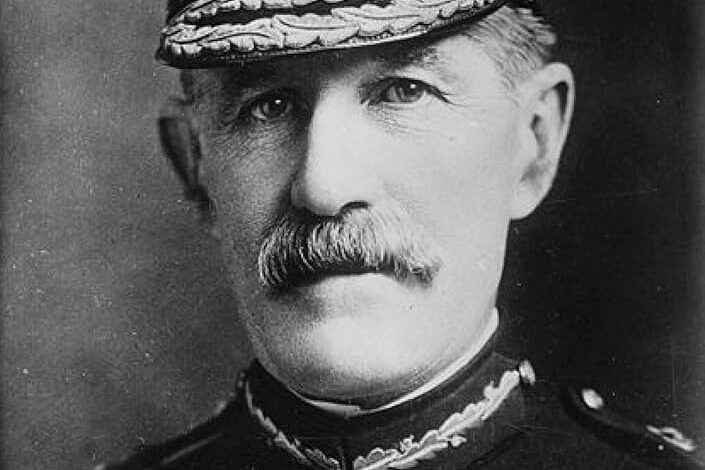Horace Smith Dorrien: Life, Career, and Military Achievements

Horace Smith Dorrien was one of Britain’s most notable generals, remembered for his bravery, controversial decisions, and unyielding dedication to his soldiers. His name often surfaces in discussions of the early battles of World War I, particularly the famous Retreat from Mons in 1914, where his leadership arguably saved the British Expeditionary Force from destruction. Yet, his career spanned far more than the Great War. From surviving the disastrous Battle of Isandlwana during the Anglo-Zulu War to holding high command during the Second Boer War, Horace Smith Dorrien’s service embodied the turbulent years of the British Empire at its height.
What makes Horace Smith Dorrien a particularly fascinating figure is not only his military record but also the human qualities that distinguished him from many of his peers. While some generals were known for arrogance or detachment, Horace Smith Dorrien was respected by rank-and-file soldiers for his fairness, discipline, and concern for their welfare. This earned him the admiration of his men, even if it sometimes placed him at odds with superiors such as Lord Kitchener and Sir John French.
In this article, we will explore the full arc of Horace Smith Dorrien’s life—from his early years and first brushes with battle, through his prominent roles in colonial campaigns, to his controversial leadership in World War I, and finally his later life and legacy. By the end, readers will understand why Horace Smith Dorrien remains a compelling figure in British military history.
Early Life and Military Beginnings
Childhood and Family Background
Horace Lockwood Horace Smith Dorrien was born on 26 May 1858 in Haresfoot, Hertfordshire, into a respectable middle-class family. His father, Robert Algernon Smith-Dorrien, was a magistrate and landowner, while his mother, Mary Ann Drever, came from a well-connected family in the British Isles. Growing up in an environment that valued discipline, tradition, and service, Horace was shaped early by ideals of loyalty and duty. Education played a crucial role in preparing him for his future career. He attended prestigious schools before moving on to the Royal Military College, Sandhurst, where he excelled in military studies and impressed his instructors with his diligence and sense of responsibility.
Entry into the British Army

Commissioned into the 95th (Derbyshire) Regiment of Foot in 1876, Smith Dorrien began his career at a time when the British Empire was expanding aggressively overseas. The army provided opportunities for ambitious young men willing to serve in far-flung colonial campaigns, and Smith Dorrien embraced this life with determination. His early years involved postings in India and Africa, where he gained experience in logistics, strategy, and the management of troops under challenging conditions. These early roles sharpened his leadership skills, especially in environments where adaptability was critical to survival.
Service in the Anglo-Zulu War
Perhaps the most dramatic episode of Smith Dorrien’s early career was his survival at the Battle of Isandlwana in 1879. As one of the few officers to escape the massacre, he displayed resourcefulness and courage under fire. The Zulu victory at Isandlwana shocked Britain, and Smith Dorrien’s escape became part of his enduring legend. Though he was still a young officer, this experience left a deep impression on him and undoubtedly shaped his approach to command in later years. For many historians, his survival at Isandlwana foreshadowed the resilience and quick decision-making that would later define his leadership.
Military Career Before World War I2.1 Service in Egypt and the Sudan Campaigns
Following his experience in South Africa, Smith Dorrien served in Egypt and Sudan during the British campaigns against the Mahdist forces in the 1880s. These campaigns tested his logistical and tactical abilities in harsh desert conditions. His participation in the Battle of Omdurman and other smaller engagements reinforced his reputation as a capable officer who combined discipline with practical solutions in the field.
Role in the Second Boer War
Smith Dorrien’s career took another significant turn during the Second Boer War (1899–1902). He commanded troops in several engagements, displaying both determination and organisational skill. Unlike some British commanders who underestimated Boer guerrilla tactics, Smith Dorrien was pragmatic and adaptable, earning respect for his ability to keep his men supplied and motivated in difficult circumstances. His leadership helped secure British victories in several key operations, and his reputation grew considerably during this time.
Promotions and Recognition
By the turn of the 20th century, Smith Dorrien had risen steadily through the ranks. His service in multiple colonial campaigns earned him a series of promotions, decorations, and honours. He was recognised as one of the British Army’s most reliable officers—tough, pragmatic, and loyal to his men. This reputation set the stage for his eventual role as a corps commander during the Great War, where his skills would be tested on an unprecedented scale.
Leadership in World War I
Command of II Corps
When World War I broke out in 1914, Smith Dorrien was appointed to command the British II Corps within the British Expeditionary Force (BEF). His leadership during the Retreat from Mons stands out as one of the defining moments of his career. Faced with overwhelming German forces, Smith Dorrien made the bold decision to turn his corps and fight a delaying action at Le Cateau. Though costly, the battle bought crucial time for the BEF to regroup and retreat in an orderly fashion. Many historians argue that his decision saved the British Army from potential annihilation.
Controversies and Conflicts
Despite his success at Mons and Le Cateau, Smith Dorrien’s career was not without controversy. He clashed repeatedly with higher commanders, particularly Sir John French and Lord Kitchener. His insistence on maintaining discipline, improving sanitary conditions for soldiers, and resisting what he viewed as reckless strategies earned him admiration from the troops but suspicion from superiors. These conflicts eventually led to his removal from command in 1915, a decision that remains debated by historians to this day.
Later Commands and the Western Front
After being relieved of field command, Smith Dorrien was offered various appointments but never again held frontline leadership during the war. He was later assigned to command forces in East Africa, but poor health prevented him from taking up the post. His absence from later campaigns deprived Britain of a general who, while not flawless, had shown both tactical skill and a rare concern for the welfare of his men.
Personal Qualities and Leadership Style
Reputation Among Soldiers
One of Smith Dorrien’s defining qualities was his popularity among the rank and file. Unlike many generals of his era, he cared deeply about the living conditions of his men. He insisted on proper sanitation, sufficient rest, and strict discipline, believing that a well-cared-for soldier would be more effective in battle. This practical approach made him beloved by soldiers, even when his decisions were unpopular with the high command.
Military Tactics and Innovations
Smith Dorrien’s tactical thinking emphasised defensive operations and strategic retreats when necessary. He believed in preserving his forces rather than sacrificing them in futile offensives, a mindset that put him at odds with commanders who favoured relentless attacks. His decision at Le Cateau exemplifies his willingness to make bold, unconventional choices under pressure. While not always celebrated at the time, many modern historians view his caution and pragmatism as ahead of their time.
Challenges and Criticisms
However, Smith Dorrien was not without flaws. Some critics argue that he lacked the aggressive vision needed for higher command, and his confrontations with superiors limited his career advancement. His inability—or unwillingness—to compromise politically may have hastened his removal from command. Yet, even his critics acknowledge that his integrity and concern for his soldiers distinguished him from many of his contemporaries.
Retirement and Later Life
End of Active Service
Smith Dorrien’s frontline career effectively ended in 1915. Though he remained a respected figure, he never returned to a major command position. For a man of his dedication, being sidelined during a global conflict must have been a profound disappointment. Still, he remained active in military circles, offering advice and maintaining his connections with fellow officers.
Life After the Army
After the war, Smith Dorrien retired from active service but continued to contribute to public life. He supported charitable organisations, particularly those aimed at helping veterans and their families. His later years were quieter, spent with his family and reflecting on a long career of service. His health gradually declined, and he died on 12 August 1930 in Chippenham, Wiltshire.
Death and Memorials
Smith Dorrien’s passing was marked by tributes from soldiers, officers, and historians alike. Memorials were erected in his honour, and his name remains associated with loyalty, discipline, and courage. Though he never reached the same fame as figures like Lord Kitchener, his contributions to the British Army are remembered by those who value practical leadership and integrity in times of crisis.
Conclusion
Horace Smith Dorrien’s life is a story of resilience, duty, and integrity. From his narrow escape at Isandlwana to his decisive stand at Le Cateau, he proved himself to be a soldier of courage and principle. While his career was marred by controversies and political clashes, his reputation among the men he led speaks volumes about his leadership. In the grand tapestry of British military history, Smith Dorrien stands as a reminder that true leadership is not only about victories on the battlefield but also about the care and respect a commander shows to those under his charge.
FAQs About Horace Smith Dorrien
Who was Horace Smith Dorrien?
He was a British Army general known for his leadership during the Anglo-Zulu War, the Boer War, and World War I.
What role did he play in the Battle of Mons?
He commanded II Corps and ordered a stand at Le Cateau, helping save the British Expeditionary Force.
How did Smith Dorrien survive the Battle of Isandlwana?
He narrowly escaped the massacre in 1879, one of the few officers to do so.
Why was he removed from command in World War I?
He clashed with superiors like Sir John French and Lord Kitchener, leading to his dismissal in 1915.
What was his leadership style like?
He was pragmatic, focused on soldier welfare, and preferred defensive strategies to reckless offesives.
How is he remembered today?
He is remembered as a fair and principled commander, respected by his troops but controversial among his peers.
Did he receive military honours?
Yes, he was decorated for his service in multiple campaigns across the British Empire.
What controversies surrounded his career?
His disagreements with higher command and his cautious approach often put him at odds with other generals.
What impact did he have on the BEF?
His decision at Le Cateau likely prevented the destruction of the British Expeditionary Force in 1914.
Where can memorials to him be found?
Memorials and tributes exist in Britain, commemorating his service and legacy.
You May Also Read: Is Ealing West London




